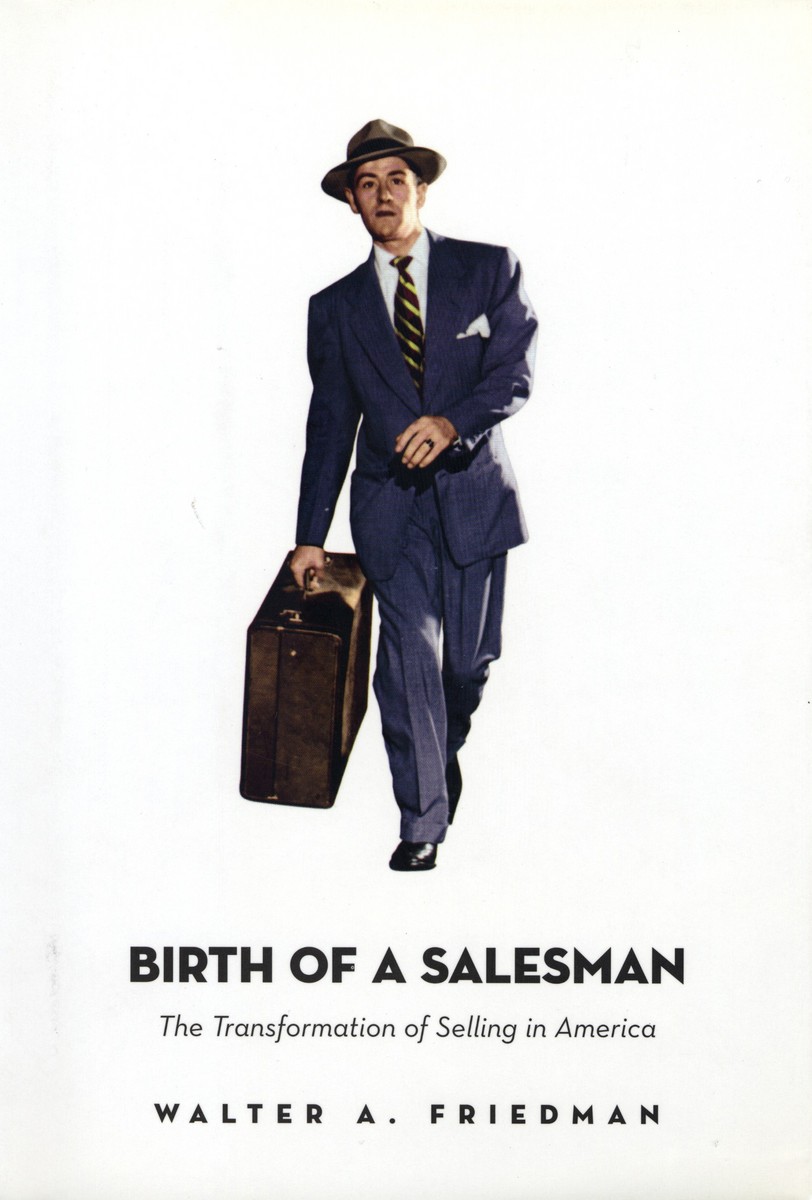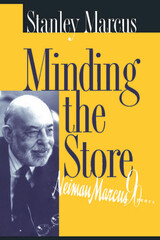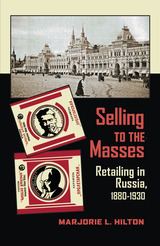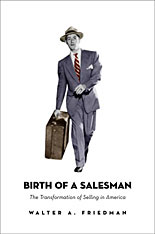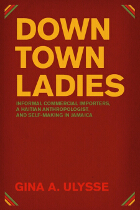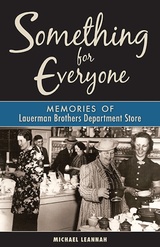I very much enjoyed reading this book. It is well written, well argued, and thoroughly researched. Salesmen, Friedman argues, helped distribute the products of America's increasingly bountiful manufacturing industries, invented new forms of managerial hierarchies, investigated the psychology of desire, and were in the vanguard of America's transformation from a producer to a consumer society. He powerfully shows that the rise of modern business practices and the emergence of a particularly American culture of consumption can only be fully understood if we examine the history of selling.
-- Sven Beckert, author of The Monied Metropolis
Walter Friedman's Birth of a Salesman: The Transformation of Selling in America is an important book. The modern industrial economy, created in the United States and Europe between the 1880s and the 1930s, required the integration of large-scale production and marketing. The evolution of mass production is a well-known story, but Friedman is the first to fill in the crucial marketing side of that industrial revolution.
-- Alfred D. Chandler, Jr., author of The Visible Hand and Scale and Scope
With wit and verve, Walter Friedman gives us a cast of memorable characters who turned salesmanship from ballyhoo to behaviorism, from silliness to science. Informed by prodigious research, Birth of a Salesman also clarifies the birth of modern marketing--from an angle that humanizes its subject through wry, ironic, but serious analysis. This is a pioneering work on a subject crucial to American social, cultural, and business history.
-- Thomas K. McCraw, author of Creating Modern Capitalism
The history Friedman weaves is engrossing and the book hits stride with entertaining chapters on Mark Twain's marketing of the memoirs of Ulysses S. Grant (apparently Twain was as talented a businessman as a writer) and on the shift from the drummer--the middleman between wholesalers and regional shopkeepers--to the department store...In Birth of a Salesman, Friedman has crafted a history of an 'inherently unlikable process' with depth, affection and intelligent analysis.
-- Carlo Wolff Boston Globe
Walter A. Friedman's Birth of a Salesman...should be required reading for anyone who watched The Apprentice for more than Omarosa's spat of the week. It's a much needed history of salesmanship in America, and a portrait of capitalism in transition.
-- Jori Finkel Village Voice
Here is an account of how the hawker, the street peddler, the lowly bagman, then the exhausted and ridiculed Willie Loman figure evolved into the mighty selling and marketing gurus of today, surrounded and supported by a battery of psychologists, economists, colour consultants, social scientists, statisticians, advertising experts and--yes!--philosophers.
-- Financial Times
In Birth of a Salesman, Walter A. Friedman traces the evolution of the modern salesman from peddlers, hawkers and canvassers of pre-industrial America.
-- Harold Perkin Times Literary Supplement
[Friedman] perceptively chronicles significant inventions, products, events, and people that have shaped the philosophy of selling. A historian at the Harvard Business School, Friedman focuses on the period from the mid-nineteenth century to the eve of World War II, a time when the concept of salesmanship came to the fore in business. Modern principles for selling were developed during those decades, he argues, and, except for some tweakings to meet the times, little has changed since.
-- Peter Krass Across the Board
In Birth of a Salesman, business historian Walter A. Friedman traces the history of salesmanship from its roots in peddling and the door-to-door marketing of Ulysses S. Grant's memoirs and Fuller brushes through the development of scientific selling and marketing by National Cash Register, Ford, Coca-Cola, and IBM. Friedman is a breezy writer with a good eye for cultural and social artifact, like the list of 10 things wives could do to help their NCR-salesmen husbands succeed. But he also has an important point to make: that it wasn't just the genius for making products that propelled the U.S. economy but the knack for creating a demand for things people never knew they wanted.
-- Washington Post
As Birth of a Salesman makes clear, salesmen--and women--have long been a vital force in driving the economic engine of the United States. Friedman conveys his thesis in a winning book that begins with descriptions of itinerant peddlers and canvassers in the early part of the 19th century...With Birth of a Salesman, he has certainly gone a long way toward fostering a greater awareness and appreciation of this often-maligned profession.
-- Thomas J. Brady Philadelphia Inquirer
This is a carefully researched and closely contextualized study of a relatively neglected, though central, character in American capitalist society during a period when the economy underwent a transformation. An archive-based study of the role of salesmen in business and the evolution of the system of selling which determined their activities contributes much to an understanding of the history of business...A lively narrative describes the development of the selling function in America, beginning with the activities of peregrinating "hawkers and walkers" to the burdensome role imposed by the aggressive marketing regimes introduced by the large, bureaucratically managed companies.
-- Roy Church Business History
[A] systematic, yet lively and energetic history...Friedman has written a fine book and it deserves a wide reading.
-- Burton Folsom Indiana Magazine of History
